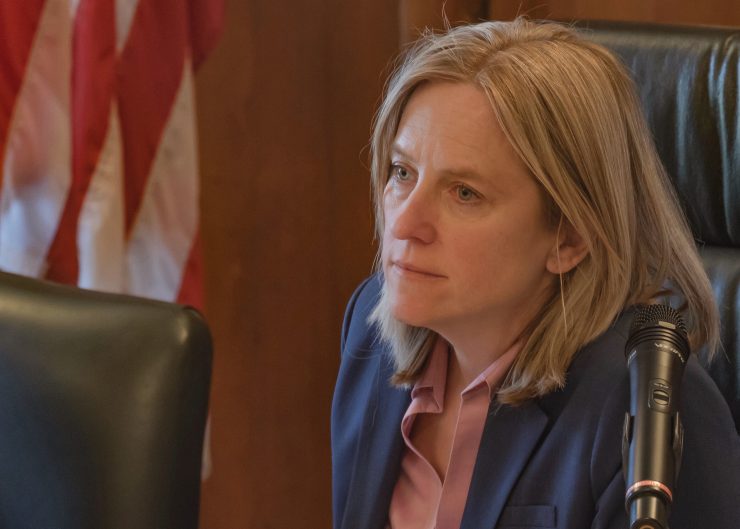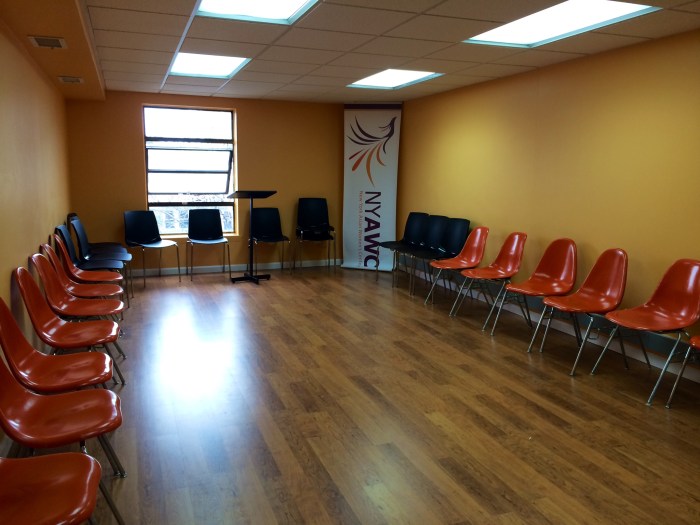A new report from the federal Human Trafficking Institute released Friday, June 24, shows that more than half of all trafficking victims in the United States last year were minors and in all criminal trafficking cases filed last year, 92% were sex trafficking cases.
This report illustrates why Queens District Attorney Melinda Katz made combatting human trafficking a priority when she took office, creating the city’s first Human Trafficking Bureau just six months into her administration.
“Human trafficking is a scourge targeting the most vulnerable people in our society for exploitation,” Katz said during her Human Trafficking Awareness event last year. “I want people to know that my office and our service providers are here to support them regardless of their immigration status and whether they want to press charges. We want victims to know our office can help them out of the tough situations they are enduring.”
The bureau aggressively investigates and prosecuted all sex and labor trafficking crimes while also connecting survivors with meaningful services, support and tools to enable them to safely escape their situations.
Assistant District Attorney Jessica Melton is the chief of the Human Trafficking Bureau and a graduate of St. John’s University Law School. During the panel discussion, she defined how sex and labor traffickers operate to exploit their targets for money, making them feel isolated and convincing them that no one would intervene in their plight, but the law makes it possible to use a rich array of resources to protect victims and bring the predators to justice.
“Human trafficking is the exploitation of a person for sex or labor through the use of force, fraud or coercion,” Melton said. “It does not require that anyone travel across state lines or anywhere at all. It may involve physical violence, or it may not. Abusers do use manipulation and fear to prey on their targets. They seek out victims who are perceived to be vulnerable and marginalized because of their age, their race or immigration status and even their mental capacity or past experiences with trauma.”
Melton’s team can help with psychological or physical coercion, violence, threats, forced drug use or fear to compel adults and children to engage in prostitution acts. They can also assist those who are subjected to exploitation with threats of injury or deportation and use of forced labor, domestic work or servitude for little or no wages.
“These abusers often convince their targets that they owe them a debt of some kind. They withhold their pay, their documents, or subject them to threats or actual violence,” Melton explained. “Abusers create an inordinate amount of fear. We need to dispel these myths. And to make clear that we have the tools available to help anyone who is being exploited restart their lives without fear of reprisal.”
Human trafficking is so prevalent in Queens because of JFK and LaGuardia airports and its proximity to Interstate 95, which is frequently used to traffic victims along the East Coast. The Queens District Attorney’s Crime Victims’ Advocates Program provides access to trained social workers and victims’ advocates who support trafficking survivors and crime victims. The program helps survivors create safety plans to successfully get away from their abusers, helping with details like transportation, arranging necessary treatment and obtaining housing with available resources or partnerships with service providers.
“Each of us can combat this scourge by knowing how to access the resources available. We can’t do any of this on our own,” Katz said. “If you are undocumented, we want you to know that documentation status should never bar anyone from asking for help. We want to help you open the doors of opportunities.”
For more information, email HumanTrafficking@queensda.org or call 718-286-6548.


































